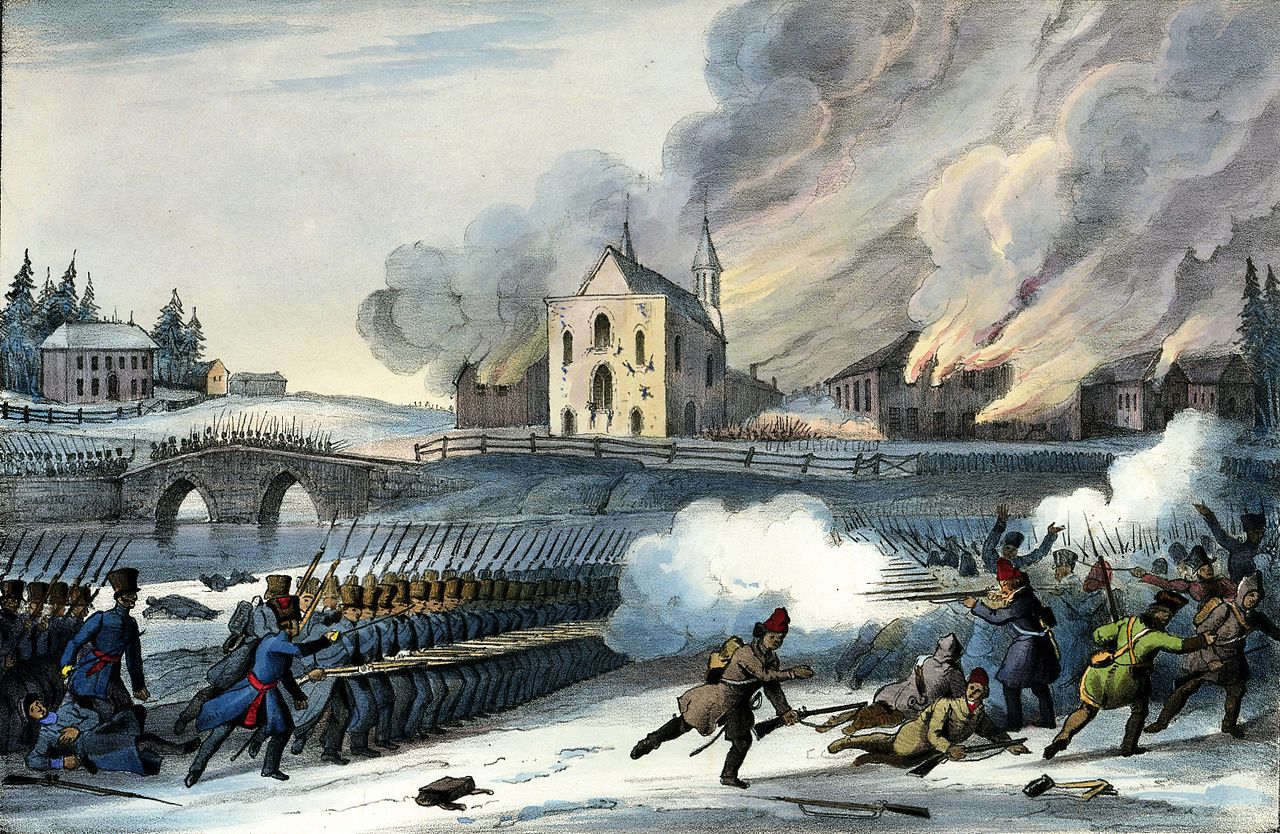I’m having an odd experience: having once used history as material to make writing points, I now find my use of it being judged as I had judged.
When I was a kid studying Canadian history, we were taught that the rebellion of 1837 in Toronto was a “comic opera” event, a farce put down by British imperial authorities that came to nothing.
Then, in university in the U.S., I learned that history was often lied about, to manipulate citizens. So naturally when I returned to Canada and became a writer in the 1970s, I looked around for pieces of Canadian history to set right and seized on that one. Along with a theatre company, using the “collective” process, we made a play, 1837, which became a staple of the Canadian repertoire, even becoming a kind of rite of passage for young actors.
Now it’s been “revived,” decades later, at the Shaw Festival, with a mature, accomplished cast and production.
First irony: at the time of the original show, we considered the Shaw and Stratford festivals the enemy — villains who disparaged Canadian artistic sources in order to foist foreign cultural material on us. We aimed to bring them down. We even included a mocking scene of a haughty Brit travelling to (Shawfest site) Niagara-on-the-Lake.
Now, it appears, everyone from that original production is delighted with the revival and plans to trek down to see it.
But more bitingly, we were certain we represented the good guys — the noble Canadian farmers of the time — versus their imperial overlords and local sycophants, the “Family Compact.” But hey, time moves on, and our show is (relatively gently) charged with overlooking truer victims: the First Nations.
Our play opened with squatting farmers being evicted from “their” land by an arrogant official on behalf of an absentee landlord. They vow to stay and fight on. It never occurred to us to ask who that land came from. People knew in fact but the issue hadn’t, as it were, occupied the main stage, the way it has since. The Shaw version copes with this by having its main set concealed by a native-inflected drop, which is then pulled off to reveal a corduroy road.
But the whole sense of place remains contentious. We set scenes boldly in locations like “Bay and Adelaide, southeast corner,” to show history happened here, as much as at Waterloo. If audiences snickered, actors took it as a challenge to make them respond solemnly to our own reality.
Yet today, events from hockey games to school announcements to political assemblies often open with an acknowledgment that “we” are meeting on the traditional territory of First Nations, based on an Indigenous protocol — great word — as recommended by the Truth and Reconciliation Commission. It was even employed at Shaw this season.
It’s one of the redemptive qualities of Canada that this ritual has taken root with relative ease, even been embraced enthusiastically, like asking fans at hockey games to rise for, “O Canada,” “if you are able.”
It may come easier if you’re younger. My friend, musician Simone Schmidt, who does much historical research herself (like her recent release, Audible Songs from Rockwood), suggests, if you have a hard time with this, repeating the phrase, “settler-colonial” 20 times a day till it starts coming naturally.
The point isn’t that we were wrong and “they” are right: they too will be found wrong in due time, it’s how history works. In fact, everyone gets a chance to be both wrong and right. The only sure thing is, said Hegel — a history buff himself around the time our play is set — “The truth is everything!”
Overall it makes me feel, in light of the ugly phase that nationalism is passing through worldwide, that we may have been fortunate not to have had more success than we did with our nationalist projects back then.
And how’s the revival? First rule regarding your own past work: manage to avoid embarrassment. Alan Jay Lerner — My Fair Lady, Brigadoon, Camelot — said when his last play opened on Broadway, that he used to hope for success, now he just wanted to escape humiliation. No problem there. Once past that, I enjoyed the show a lot, especially since I saw the opening with my 18-year-old son — though I’ve never known whether family counts as history or something…other.
This column was first published in the Toronto Star.
Image: Wikimedia Commons
Like this article? Please chip in to keep stories like these coming.





